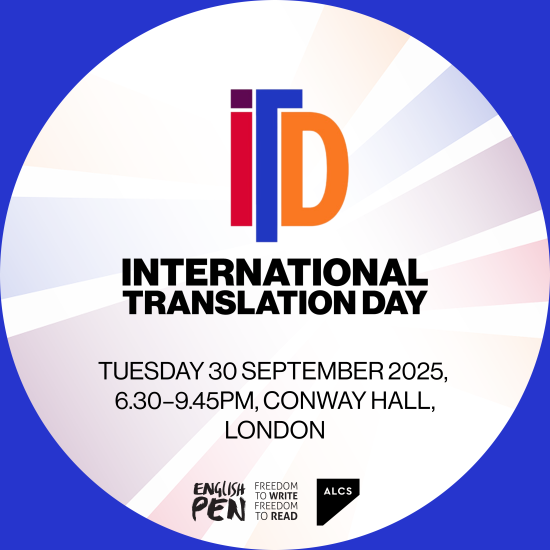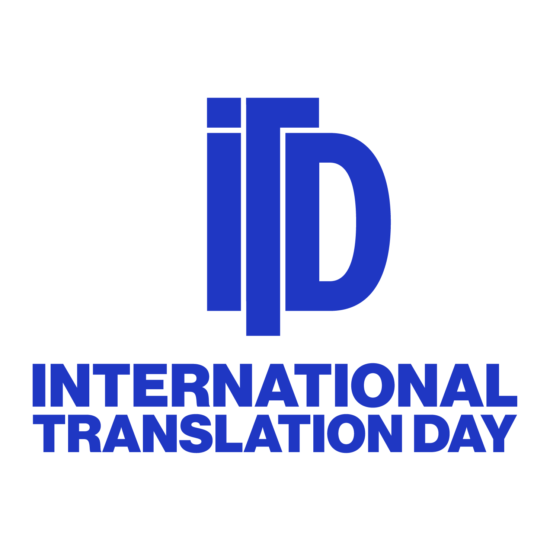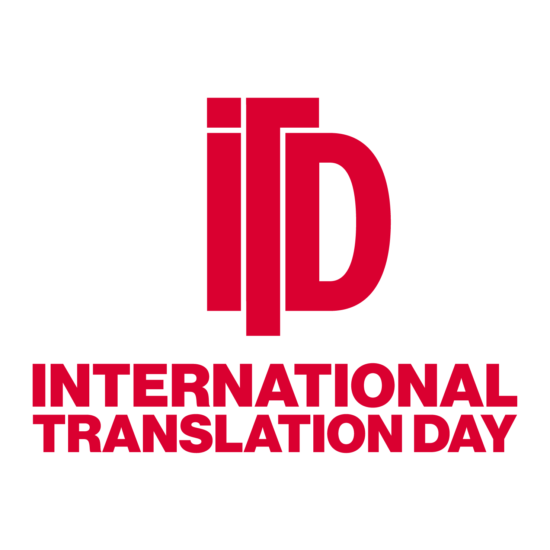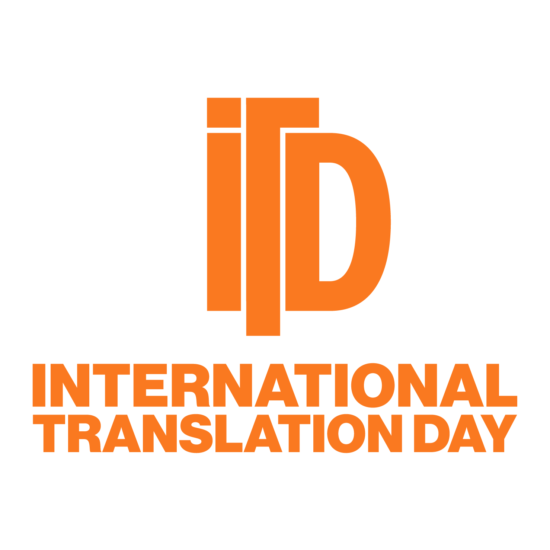International Translation Day 2025 English PEN programme
English PEN’s annual programme for International Translation Day returns on Tuesday 30 September, with a two-part conversation exploring pressing questions for the craft, business and ethics of translation: How can literary translation thrive in the face of global turmoil? And how can literary translation thrive in the face of artificial intelligence?
Join translators, agents, publishers, booksellers and programmers to discuss these issues, and help shape how the sector responds to them.
ITD 2025 is hosted in person at Conway Hall, London, on Tuesday 30 September, supported by the Authors’ Licensing and Collecting Society (ALCS).
You can also join us for a series of online and in-person workshops in Birmingham and Manchester across September and October as part of our programming for ITD 2025.

International Translation Day 2025
Translating Today (or Trying To)
Tuesday 30 September 2025
6.30–9.45pm BST (doors 6pm BST)
Part 1: Translating (Against) AI
6.45–7.40pm
Rights Director at PRH Lucy Beresford-Knox, Chair of the Translators Association Ian Giles, author Hamid Ismailov and CEO of Shimmr AI Nadim Sadek, chaired by translator and Director of the Poetry Translation Centre Nariman Youssef, discuss the singular issue of AI and literary translation. Does AI pose an existential threat to literary translation? Who in the sector is doing what with AI? Who is making money and who is losing it? Which voices and nuances are being lost, and what can AI be used for.
This section of the evening will explore these questions, and whether there is scope to agree on a set of practices and principles that we can take to key stakeholders in each part of the sector.
Part 2: Translating in a Hostile World
7.50–8.45pm
Nariman Youssef returns to speak to Editorial Director at Saqi Books Elizabeth Briggs, Co-director of Round Table Books Meera Ghanshamdas, translator Hazem Jamjoum and Head of RCW International Laurence Laluyaux about the place of literary translation in an era of growing hostility, crisis and conflict.
Where we talk about translated literature’s capacity to cross borders and foster empathy, understanding and cooperation, does this ideal hold true in today’s world? How can we translate against isolationism, violence and genocide? What can translation do as testimony, in solidarity, for hope? Is this what translators, authors and readers want?
This section of the evening will explore these questions, and how they can shape the translation sector over the next year.
Networking reception
8.45–9.45pm
Close
9.45pm
Workshops
Translating colonial languages through decolonial translation practices
17 September 2025, 6–8pm BST, online
This online workshop will explore the political, geopolitical and ethical complexities of working from and into languages with colonial legacies, neocolonial relationships or hegemonic structures.
Led by Madhu Kaza, it will ask: what does it mean to translate from a language tied to ongoing colonial, imperial or nationalist projects? When a language is part of a regressive political strategy, what does this do to our translation? How do we translate between languages with a shared history of imperialist violence? How do we make space for marginalised or subjugated languages while recognising and utilising the role of “global” languages in this aim? How do we translate from languages with which we have a political or ethical issue?
Participants are asked to bring a passage or project they are working on, in any language, which they feel is beset by these questions. They should be prepared to discuss the project and the challenge they are working with – when on a word, sentence, or whole-text level.
This workshop is pitched at practicing literary translators of any level of experience.

Translating complex, contested and sensitive non-fiction
23 September 2025, 6–8pm BST, online
This online workshop, focused on translating non-fiction about controversial, contested or sensitive subjects, will explore the associated complexities, responsibilities and risks. Examples to be considered will include testimonies from ongoing conflicts and first-person stories of trauma, politically charged essays and state-censored news. The discussion, facilitated by translator and journalist Anna Aslanyan, will address the following questions: What must we hold true and dear in our acts of translation? What do the notions of truth, clarity, nuance and voice mean in these circumstances? Can repercussions, legal or otherwise, ever be justified? How can we do this vital work with confidence?
Participants are asked to bring a passage from a project they are working on, in any language, which they feel is beset with these questions. They should be prepared to discuss the project and the challenges they are facing, be it on a word, sentence or text level.
This workshop is pitched at practicing literary translators of any level of experience.

Translating South Asian literature: a feminist approach
11 October 2025, 10am–12pm, The Exchange, Birmingham Literature Festival
With a focus on contemporary South Asian literature, this workshop will explore intersectional feminist translation practices. Led by writer and translator Kavita Bhanot, through creative exercises, participants will consider questions such as: Is feminist translation a matter of identity or a matter of practice? How does the lived experience we bring to a text influence our understanding of feminist translation?
This workshop is open to aspiring, emerging and established literary translators, and those interested in learning about the craft, of all genders and with any relationship to any South Asian languages. Participants are encouraged to bring a piece of text they’re working on or interested in.
This event is presented in partnership with Birmingham Literature Festival and the University of Birmingham’s Feminist Translation Network.

Translating as activism
20 October 2025, 6–8pm, The Poetry Library, Manchester (as part of Manchester Literature Festival)
Aimed at aspiring and early-career translators, this workshop will ask whether translation is an inherently activist act, or whether “activist” translation is something translators must choose to do.
Led by Kasia Szymanska, this participatory conversation will ask: how can we use our languages to make the change we want? Should all activists want to translate? Should all translators want to be activist? And are we talking about different things when we talk about translation as activism and translation as art?
This workshop is aimed at individuals interested in translation, just starting out, or early into their practice. Participants are encouraged to bring something they would like to ask or share, such as a story about their experience with languages that they think is relevant to the theme.
This event is presented by English PEN, in partnership with Comma Press and Manchester Translation Series, and is part of Manchester Literature Festival and English PEN’s programme for International Translation Day 2025.
